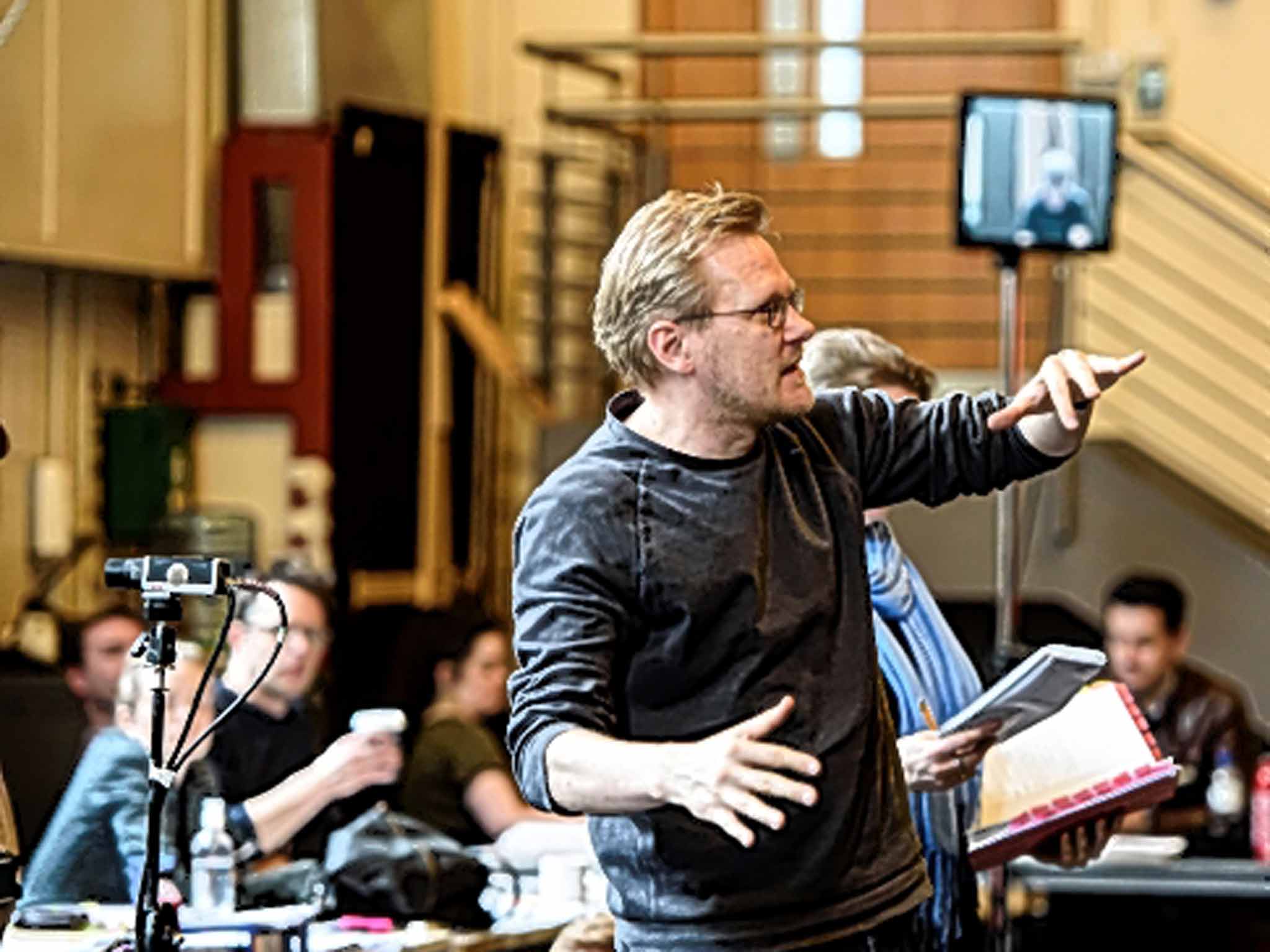Karol Szymanowski's 'Król Roger': A forgotten classic set to rule again
The Royal Opera House debut next month is long overdue, says Jessica Duchen

Back in 2000, Simon Rattle, then music director of the City of Birmingham Symphony Orchestra, brought out a recording of a rarely performed masterpiece: the opera Król Roger (King Roger) by the Polish composer Karol Szymanowski (1882-1937). Throwing his weight behind the rehabilitation of this neglected composer, he once remarked: "I cannot talk objectively about Szymanowski, for you cannot expect objectivity or reasonability from someone in love. And reasonability is out of place when this music is concerned."
Now there is a chance for many more people to fall in love with Szymanowski, and Król Roger in particular. It is about to open at the Royal Opera House, the first time it has ever been staged there. The 1924 "magnum opus" by the most important Polish composer to emerge after Chopin, it seems overdue.
It is anything but a conventional opera: a compact one and a half hours, part music drama, part "mystery play", exploring the conflict between body and soul, duty versus hedonism. On one level, the story is about a 12th-century king of Sicily whose troubled equilibrium is threatened by a shepherd who arrives at his court and initiates him into Dionysian mysteries. King Roger must face the dangers of his own repressed desires, but the Shepherd leads him towards greater self-acceptance; finally the King is able to embrace the full richness and complexity of life.
The pianist Arthur Rubinstein left a vivid description of Szymanowski, aged 21, in his memoirs, writing: "His beautiful, large, grey-blue eyes had a sad, intelligent and most sensitive expression. He walked towards us with a slight limp, greeted his friend cordially but without effusion and accepted our warm welcome with a polite but aloof smile." If this portrait and the opera's scenario suggest a troubled soul, that is no wonder, for Szymanowski was as complex as the times in which he lived. He was a gay Catholic in repressive turn-of-the-century Poland; a keen traveller, fascinated by north Africa, Greece and the Mediterranean, who nevertheless remained devoted to "the idea of Poland"; and a cultured, peaceable man caught up in the Russian Revolution that destroyed his family home.
Król Roger's libretto is by Szymanowski's cousin, travelling companion and close friend, the poet Jaroslaw Iwaszkiewicz, but the story was Szymanowski's own and he had a strong hand in the text's development. While it is often thought to have a gay substratum, its director at the ROH, Kasper Holten, says that he prefers to focus on its universal message – and that the struggling psyche it reflects is undoubtedly Szymanowski's own.
"It was really a life project for him," Holten suggests. "It's not trying to please people or play by the book. He's not trying to write an opera, but to create something that feels deeply essential to him. We all have a facade we try to uphold and there's something remarkable about Szymanowski letting that facade break and showing us how turbulent his soul is. It's not really a story about 12th-century Sicily; it's about Szymanowski's inner landscape."
The music itself mixes the influences of Debussy, Scriabin and Stravinsky, especially the latter's ballet score The Firebird, with the impact of Szymanowski's attraction to the exoticism of north Africa, the dense choral sounds of Orthodox church music and a fabulous mastery of orchestration. The result is refulgent with colour and sensuality, shimmering like a musical opal. No wonder Rattle was entranced, and wished to entrance us all.
Szymanowski died of tuberculosis at the age of 54 in 1937. Król Roger nearly died with him, vanishing from view for around half a century. Holten suggests that a veritable "cultural revolution" took place in European music around this time. "This opera shares a fate with a lot of pieces from the same era," he says. "They were not exactly forgotten, but were performed a lot less when other directions in the art took over and some late romantic pieces were considered too romantic or too melodic."
In the period surrounding the Second World War, some works were ideologically cast out by political regimes, others were caught up later by the large-scale post-war rejection of prewar culture, and many fell foul of both. But at long last a powerful revival of interest in this repertoire has taken hold. Holten declares that some of his own most satisfying experiences as a director have been with works of this sphere, notably Richard Strauss's Die Frau ohne Schatten and Korngold's Die Tote Stadt. For him, Szymanowski is up there with the best of his day.
"In the last 10 to 15 years we've begun to accept again their immense theatricality and this blossoming, lush scoring," Holten says. "I think we're ready now for more epic opera." With the Polish baritone Mariusz Kwiecień in the title role, Sir Antonio Pappano conducting and a director more than at home in this idiom, Król Roger finally has a chance to prove him right.
'Król Roger', Royal Opera House, London WC2 (020 7304 4000) 1 to 19 May
The performance on 16 May is live-streamed free on the new Opera Europa Digital Platform and the ROH's YouTube channel
Join our commenting forum
Join thought-provoking conversations, follow other Independent readers and see their replies
Comments
Bookmark popover
Removed from bookmarks